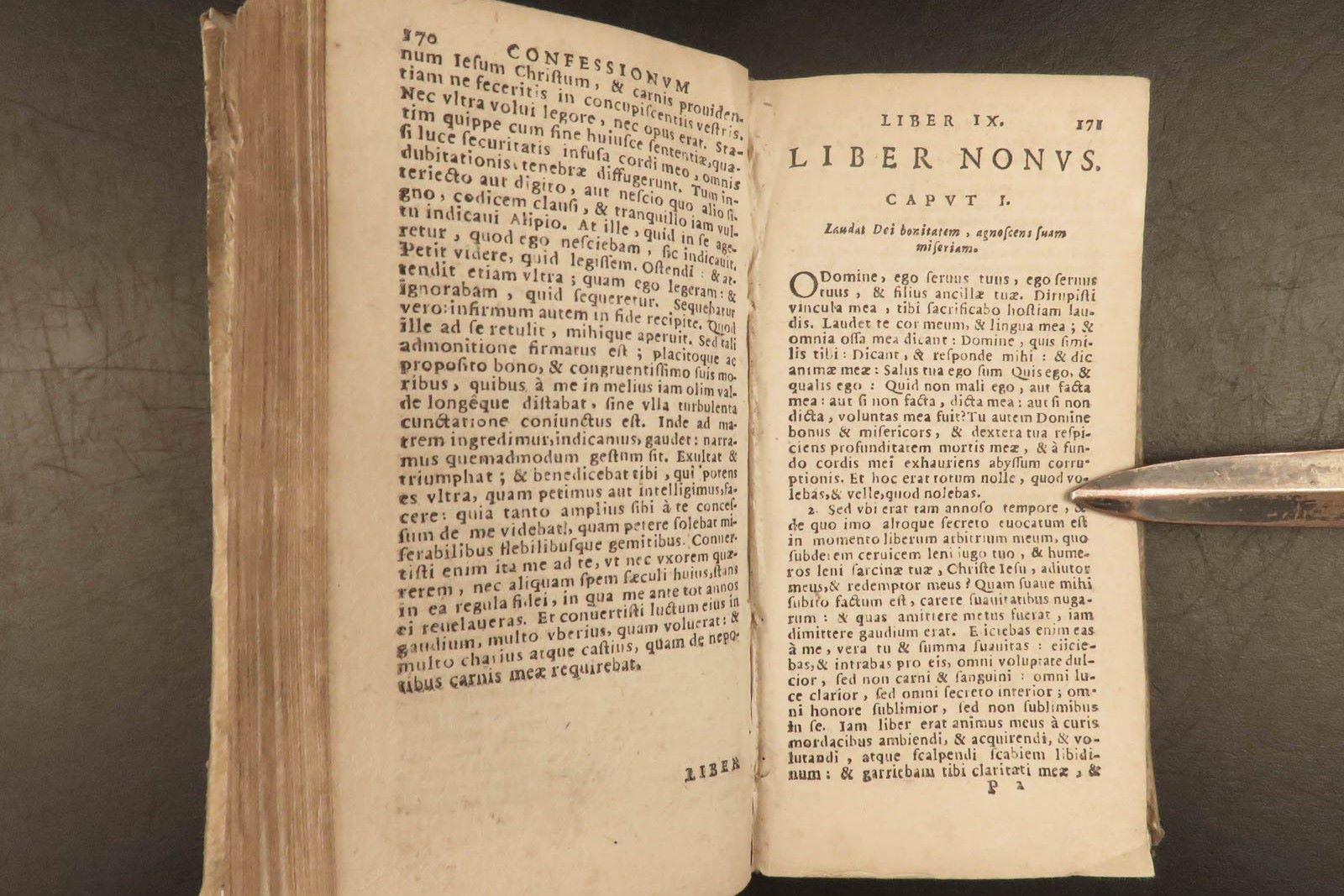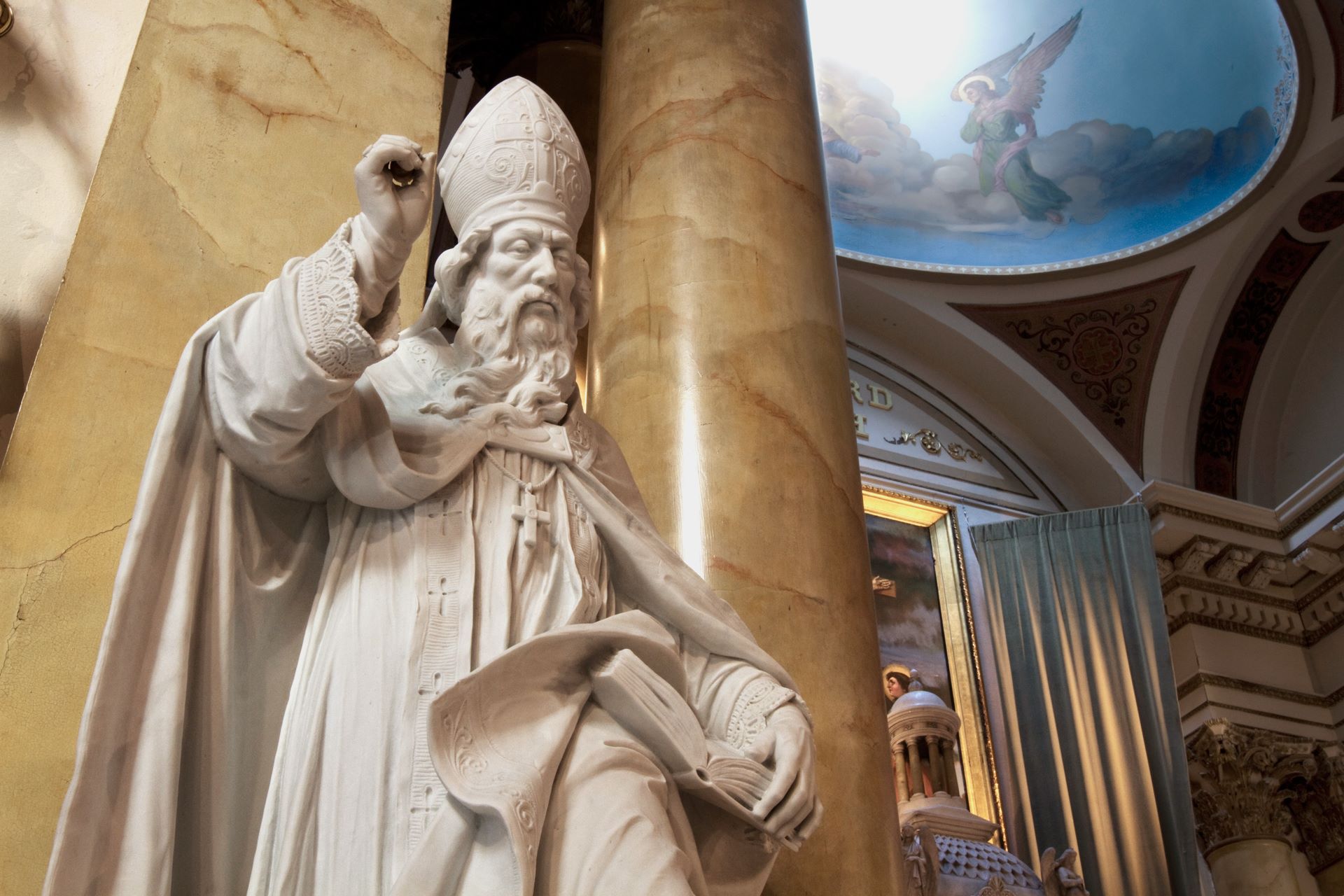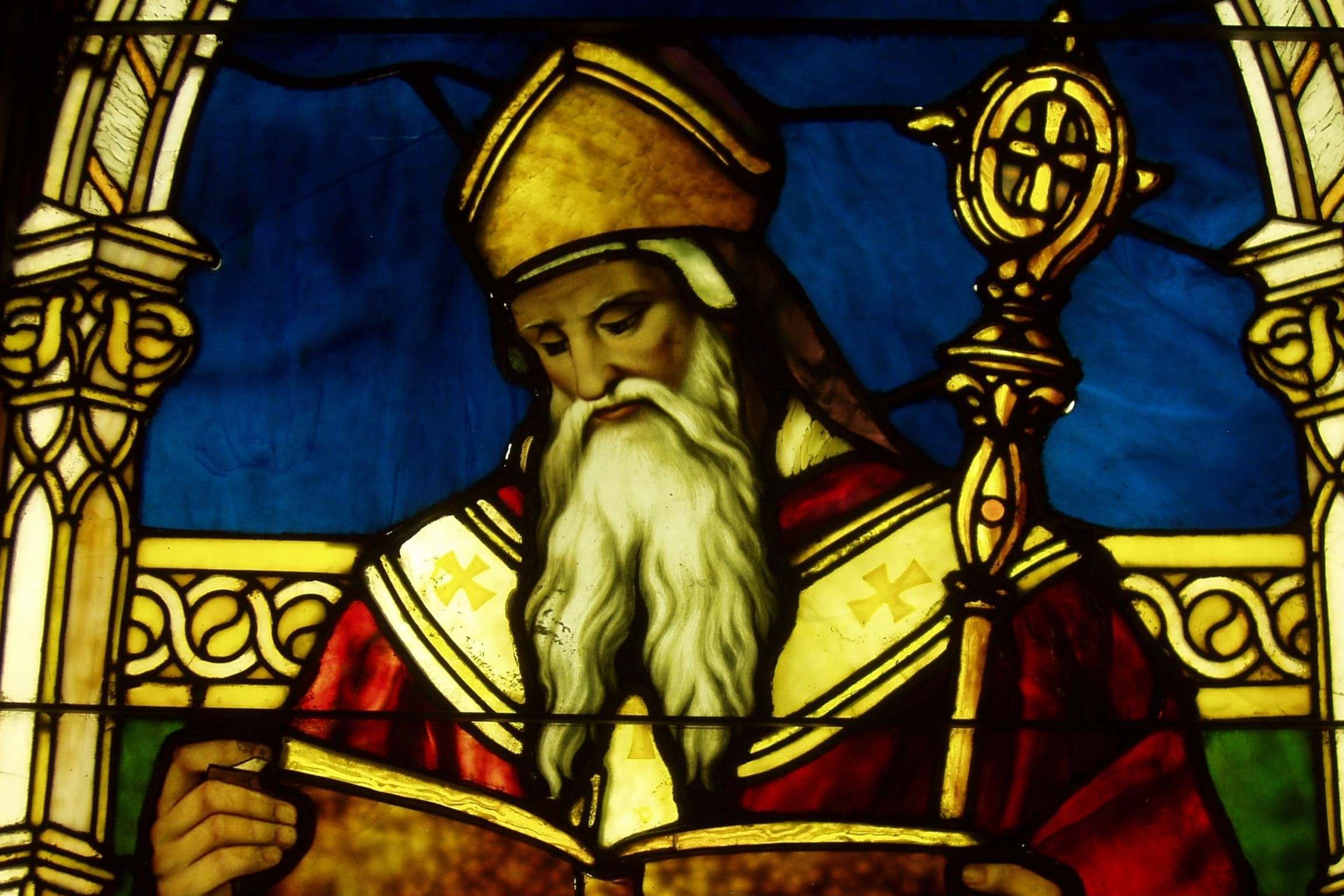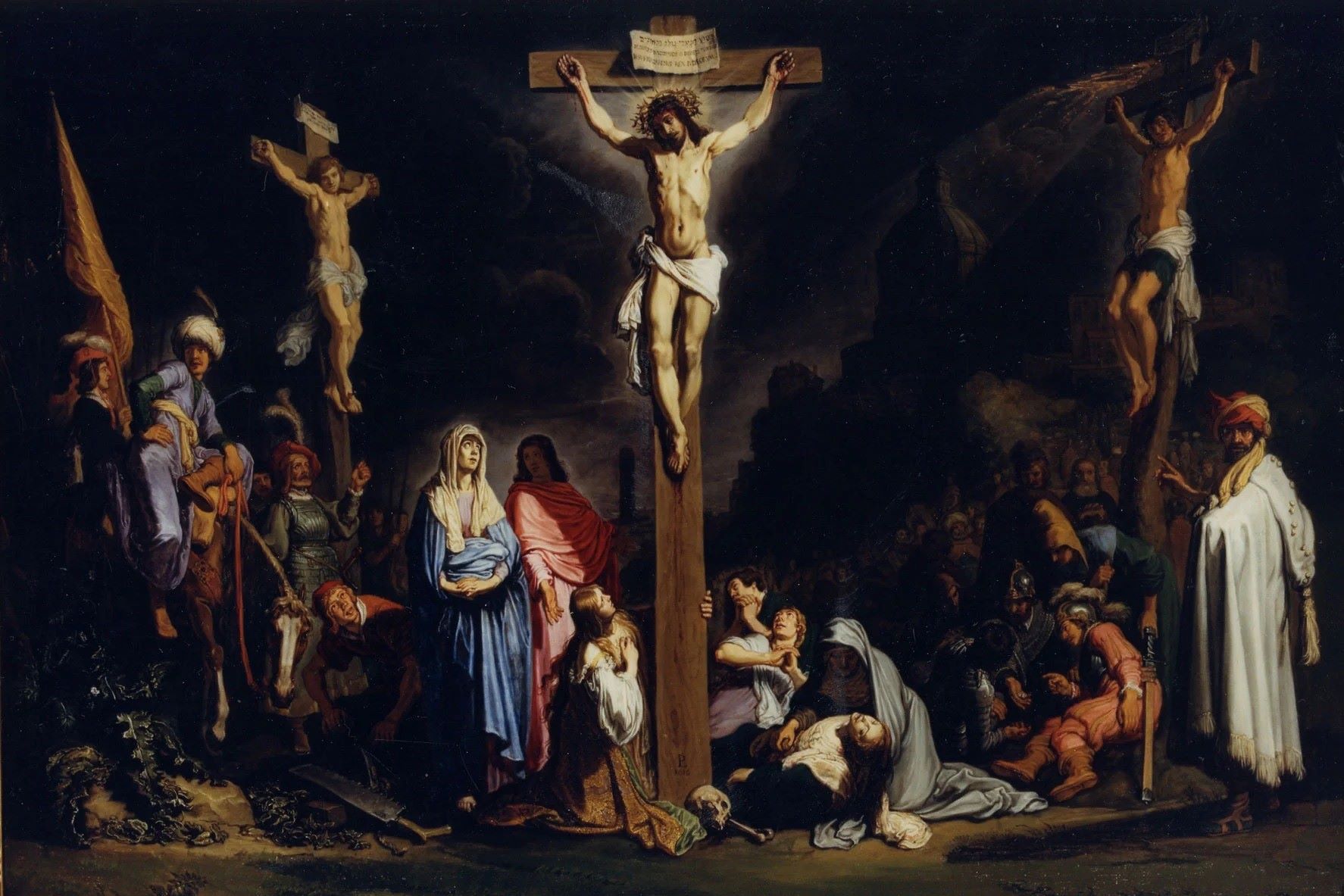Home>Theology and Spirituality>What Does Love Look Like, Saint Augustine


Theology and Spirituality
What Does Love Look Like, Saint Augustine
Published: February 10, 2024
Peter Smith, Editorial Director at Christian.net, combines deep insights into faith, politics, and culture to lead content creation that resonates widely. Awarded for his contributions to religious discourse, he previously headed a major organization for religious communicators, enhancing dialogue on faith's societal impacts.
Explore the profound insights of Saint Augustine on theology and spirituality, and discover the essence of love through his timeless wisdom.
(Many of the links in this article redirect to a specific reviewed product. Your purchase of these products through affiliate links helps to generate commission for Christian.net, at no extra cost. Learn more)
Table of Contents
Introduction
Love is a concept that has captivated the hearts and minds of humanity for centuries. It transcends cultural boundaries, defies logical explanation, and serves as a driving force behind countless actions and decisions. In the realm of theology and spirituality, the exploration of love takes on profound significance, delving into the very essence of human existence and its connection to the divine.
One of the most influential figures in this exploration is Saint Augustine, a theologian and philosopher whose profound insights continue to shape the understanding of love in the context of spirituality. Augustine's writings, particularly his seminal work "Confessions," offer a deep and introspective examination of love, shedding light on its multifaceted nature and its profound implications for the human soul.
As we embark on a journey to unravel the depths of love through the lens of Saint Augustine's teachings, we are invited to contemplate the complexities of human emotions, the yearning for transcendence, and the divine source from which love emanates. Through Augustine's profound wisdom, we are encouraged to ponder the transformative power of love, its role in shaping our relationships, and its capacity to lead us towards spiritual fulfillment.
In the following sections, we will delve into Saint Augustine's definition of love, exploring its implications for our understanding of spirituality and the human experience. We will also contemplate love as a reflection of the divine, a source of joy and fulfillment, and a transformative force that has the potential to elevate the human soul. Through this exploration, we aim to gain a deeper appreciation for the profound significance of love in the context of theology and spirituality, drawing inspiration from Augustine's timeless insights.
Read more: Who Was Saint Augustine
Saint Augustine's Definition of Love
Saint Augustine's profound exploration of love in his seminal work "Confessions" offers a timeless definition that continues to resonate with spiritual seekers and scholars alike. At the core of Augustine's understanding lies the concept of love as a fundamental force that shapes human existence and its relationship with the divine. According to Augustine, love is not merely an emotion or a fleeting sentiment; rather, it is a profound orientation of the soul, a driving force that directs our actions, desires, and pursuits.
Augustine delineates love into two primary categories: love of God and love of self. He posits that the essence of love lies in the pursuit of God, the ultimate source of all love and goodness. This divine love, in Augustine's view, represents the highest form of love, transcending human affections and desires. It is an unwavering devotion to the divine, an unyielding commitment to seeking and embodying the divine attributes of compassion, mercy, and grace.
In contrast, Augustine acknowledges the presence of a distorted form of love, characterized by self-centeredness and the pursuit of earthly pleasures. This self-centered love, often manifesting as the pursuit of material possessions, power, or sensual gratification, represents a deviation from the true essence of love as defined by Augustine. It is a love that is fragmented, transient, and ultimately unfulfilling, leading to spiritual emptiness and disconnection from the divine.
Central to Augustine's definition of love is the concept of disordered love, wherein the human soul becomes entangled in the pursuit of temporal pleasures and distractions, forsaking the pursuit of divine love. This disordered love, according to Augustine, leads to a state of spiritual unrest and dissatisfaction, as it fails to align with the inherent longing for union with the divine.
In essence, Augustine's definition of love transcends the conventional understanding of affection and attachment, delving into the profound depths of the human soul's yearning for transcendence and spiritual fulfillment. It invites individuals to reflect on the orientation of their love, discerning whether it is directed towards the temporal and fleeting or anchored in the eternal and divine. Augustine's insights continue to inspire contemplation on the nature of love, urging individuals to seek the highest form of love that leads to spiritual wholeness and communion with the divine.
Love as a Reflection of God
Saint Augustine's profound insights into the nature of love extend to its role as a reflection of the divine essence. In Augustine's theological framework, love serves as a profound reflection of God's nature, embodying the divine attributes of compassion, mercy, and boundless grace. At the heart of this concept lies the understanding that the very essence of love emanates from the divine source, permeating the fabric of existence and illuminating the human experience.
According to Augustine, the love that permeates the human soul and inspires acts of kindness, empathy, and selflessness is a direct reflection of the divine love that sustains the universe. It is through the expression of love that individuals partake in the divine nature, aligning their hearts with the eternal principles of goodness and compassion. In this sense, love becomes a sacred conduit through which the divine presence manifests in the world, touching the lives of individuals and fostering a sense of interconnectedness and spiritual unity.
Augustine's profound understanding of love as a reflection of God transcends the boundaries of human comprehension, inviting individuals to contemplate the profound mystery of divine love. It beckons them to recognize that every act of love, whether grand or seemingly insignificant, carries within it the imprint of the divine, infusing the world with a sense of transcendence and sacred purpose.
Furthermore, Augustine's insights inspire individuals to cultivate a deeper awareness of the divine presence within themselves and others, recognizing that every expression of love is a testament to the inherent goodness and grace that permeates the cosmos. Through this recognition, individuals are called to embody the divine attributes of love in their interactions, relationships, and endeavors, thereby becoming vessels through which the divine love shines forth in the world.
In essence, Augustine's teachings on love as a reflection of God serve as a profound invitation to behold the sacred nature of love and its intrinsic connection to the divine. It encourages individuals to perceive love as a transformative force that not only shapes human relationships but also serves as a testament to the eternal and boundless love that emanates from the heart of the divine. Through this understanding, individuals are inspired to embrace love as a sacred expression of their spiritual journey, recognizing its capacity to illuminate the path towards spiritual fulfillment and communion with the divine.
Love as a Source of Joy and Fulfillment
Saint Augustine's profound insights into the nature of love extend to its role as a source of joy and fulfillment in the human experience. According to Augustine, love possesses the remarkable capacity to infuse life with profound joy and spiritual fulfillment, transcending the temporal and fleeting pleasures that often characterize human pursuits. At the heart of Augustine's understanding lies the recognition that authentic love, rooted in the pursuit of the divine, has the power to elevate the human spirit and awaken a profound sense of inner fulfillment.
In Augustine's view, the pursuit of temporal pleasures and self-centered desires may offer fleeting moments of gratification, but ultimately leads to a sense of spiritual emptiness and disillusionment. Conversely, love that is anchored in the divine, characterized by selflessness, compassion, and a genuine desire for spiritual communion, becomes a wellspring of enduring joy and fulfillment. This form of love transcends the limitations of the material world, offering individuals a glimpse of the eternal and the transcendent.
Furthermore, Augustine emphasizes that the pursuit of divine love leads to a profound sense of inner fulfillment, as it aligns the human soul with its inherent longing for spiritual communion and transcendence. This fulfillment arises from the recognition that love, when grounded in the divine, becomes a transformative force that imbues every aspect of life with meaning and purpose. It fosters a deep sense of interconnectedness with the divine, leading to a profound inner joy that transcends the fluctuations of external circumstances.
Moreover, Augustine's teachings invite individuals to recognize that the pursuit of divine love not only brings joy and fulfillment to the individual soul but also radiates outward, enriching the lives of others and fostering a sense of communal harmony and spiritual unity. Through the expression of divine love, individuals become instruments of joy and fulfillment, uplifting the hearts of those around them and contributing to the creation of a more compassionate and harmonious world.
In essence, Augustine's profound insights into love as a source of joy and fulfillment inspire individuals to seek a deeper understanding of love as a transformative and transcendent force. It calls upon individuals to cultivate a love that transcends the temporal and self-centered, embracing instead the boundless and enduring love that emanates from the divine source. Through this pursuit, individuals are invited to experience the profound joy and spiritual fulfillment that arise from aligning their hearts with the eternal principles of love and compassion.
Love as a Transformative Force
Saint Augustine's profound insights into the nature of love extend to its role as a transformative force that has the power to profoundly shape the human soul and elevate the individual towards spiritual wholeness. According to Augustine, love, when grounded in the pursuit of the divine, becomes a catalyst for inner transformation, leading individuals towards a profound metamorphosis of the heart and spirit.
At the core of Augustine's teachings lies the recognition that authentic love, rooted in the pursuit of the divine, possesses the remarkable capacity to transcend the limitations of the human condition and awaken the dormant potential within the soul. This transformative love serves as a catalyst for inner growth, inviting individuals to transcend their self-centered inclinations and embrace a higher, more expansive understanding of their place in the cosmos.
Furthermore, Augustine emphasizes that the transformative power of love lies in its ability to purify the human heart, freeing it from the entanglements of self-centered desires and ego-driven pursuits. Through the pursuit of divine love, individuals undergo a process of inner refinement, shedding the layers of spiritual stagnation and awakening to the inherent goodness and grace that reside within the depths of their being.
Moreover, Augustine's teachings invite individuals to recognize that the transformative force of love extends beyond the confines of the individual soul, permeating the fabric of human relationships and societal dynamics. As individuals undergo inner transformation through the pursuit of divine love, they become beacons of compassion, empathy, and wisdom, inspiring positive change in the world around them.
In essence, Augustine's profound insights into love as a transformative force inspire individuals to embark on a journey of inner metamorphosis, embracing the boundless love that emanates from the divine source. Through this transformative love, individuals are called to transcend their limitations, embodying the divine attributes of compassion, grace, and selflessness. In doing so, they become catalysts for positive change, contributing to the creation of a more harmonious and spiritually enriched world.
This understanding of love as a transformative force serves as a timeless invitation for individuals to embark on a profound inner journey, embracing the boundless love that has the power to elevate the human spirit and transform the world around them.
Read more: Augustine: Love And Do What You Will
Conclusion
In conclusion, Saint Augustine's profound insights into the nature of love offer a timeless and transformative understanding of this fundamental aspect of human existence. Augustine's definition of love as a profound orientation of the soul, encompassing both the pursuit of divine love and the recognition of disordered, self-centered love, invites individuals to embark on a journey of introspection and discernment. By delineating the contrasting manifestations of love, Augustine prompts individuals to reflect on the orientation of their own affections, discerning whether they are rooted in the temporal and fleeting or anchored in the eternal and divine.
Furthermore, Augustine's portrayal of love as a reflection of the divine essence illuminates the sacred nature of love, inviting individuals to recognize every expression of love as a testament to the inherent goodness and grace that permeates the cosmos. This understanding inspires individuals to cultivate a deeper awareness of the divine presence within themselves and others, fostering a sense of interconnectedness and spiritual unity.
Moreover, Augustine's teachings on love as a source of joy and fulfillment resonate deeply with the human longing for transcendence and spiritual wholeness. By emphasizing the transformative power of divine love to elevate the human spirit and infuse life with profound meaning and purpose, Augustine invites individuals to seek a deeper understanding of love as a transcendent and enduring force.
Finally, Augustine's insights into love as a transformative force call upon individuals to embark on a journey of inner metamorphosis, shedding the layers of spiritual stagnation and awakening to the inherent goodness and grace that reside within the depths of their being. Through the pursuit of divine love, individuals become catalysts for positive change, contributing to the creation of a more harmonious and spiritually enriched world.
In essence, Saint Augustine's profound exploration of love transcends the boundaries of time and culture, offering a timeless invitation for individuals to contemplate the profound significance of love in the context of theology and spirituality. Through Augustine's timeless insights, individuals are encouraged to embrace love as a sacred expression of their spiritual journey, recognizing its capacity to illuminate the path towards spiritual fulfillment and communion with the divine.














